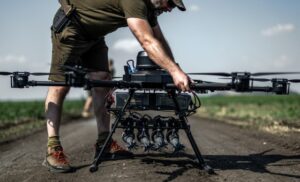NASA has invented a new type of high-performance battery that researchers claim could be used to power fully electric airplanes.
The US space agency made the breakthrough following investigations into solid-state batteries, which hold more energy and are lighter than industry-standard lithium-ion batteries.
Solid-state batteries also perform better in stressful environments, as they are less prone to overheating, fire and loss of charge over time, however they typically cannot discharge energy at the same rate as li-ion batteries.
Until now, this has made them unsuitable for powering large electronics, such as electric vehicles, as they require batteries capable of discharging their energy an incredibly fast rate.
This issue was solved by researchers at Nasa’s Solid-state Architecture Batteries for Enhanced Rechargeability and Safety (SABERS) unit, who were able to increase the battery’s discharge rate by a factor of 10 using innovative new materials that have yet to be used in batteries.
A novel vertical-stack design also allowed SABERS researchers to create a solid-state battery capable of powering objects at a capacity of 500 watt-hours per kilogram – roughly double that of an electric car.
“The possibilities are pretty incredible,” said Rocco Viggiano, principal investigator for SABERS at Nasa’s Glenn Research Center in Cleveland.
Secretive Turkish intelligence unit set to conduct clandestine operation in Greece – Nordic Monitor
“We’re starting to approach this new frontier of battery research that could do so much more than lithium-ion batteries can… Not only does this design eliminate 30 to 40 per cent of the battery’s weight, it also allows us to double or even triple the energy it can store, far exceeding the capabilities of lithium-ion batteries that are considered to be state of the art.”
The new battery has already generated interest from government, industry and academia, with SABERS researchers partnering with several organisations to continue developing the technology.
The ultimate aim is to use it to pioneer a new era of sustainable aviation that eliminates carbon emissions and noise from planes.
Nasa has already made significant progress in this area through its experimental X-57 aircraft, nicknamed Maxwell, which replaces fuel-powered propellers with an all-electric propulsion system.
Source: Independent
Ask me anything
Explore related questions





